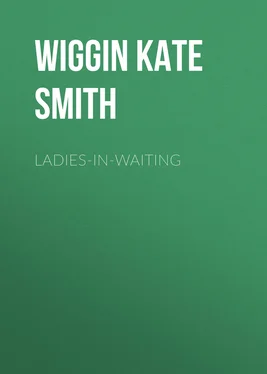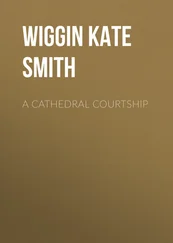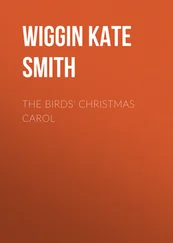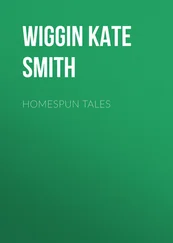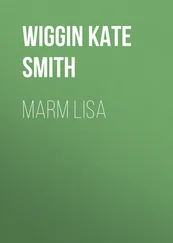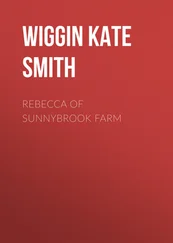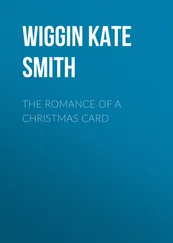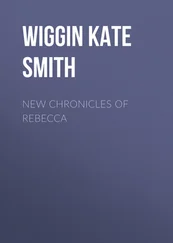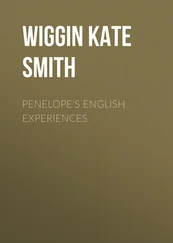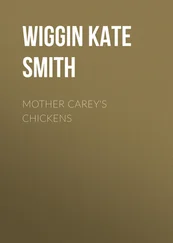Kate Wiggin - Ladies-In-Waiting
Здесь есть возможность читать онлайн «Kate Wiggin - Ladies-In-Waiting» — ознакомительный отрывок электронной книги совершенно бесплатно, а после прочтения отрывка купить полную версию. В некоторых случаях можно слушать аудио, скачать через торрент в формате fb2 и присутствует краткое содержание. Жанр: foreign_prose, foreign_antique, на английском языке. Описание произведения, (предисловие) а так же отзывы посетителей доступны на портале библиотеки ЛибКат.
- Название:Ladies-In-Waiting
- Автор:
- Жанр:
- Год:неизвестен
- ISBN:нет данных
- Рейтинг книги:4 / 5. Голосов: 1
-
Избранное:Добавить в избранное
- Отзывы:
-
Ваша оценка:
- 80
- 1
- 2
- 3
- 4
- 5
Ladies-In-Waiting: краткое содержание, описание и аннотация
Предлагаем к чтению аннотацию, описание, краткое содержание или предисловие (зависит от того, что написал сам автор книги «Ladies-In-Waiting»). Если вы не нашли необходимую информацию о книге — напишите в комментариях, мы постараемся отыскать её.
Ladies-In-Waiting — читать онлайн ознакомительный отрывок
Ниже представлен текст книги, разбитый по страницам. Система сохранения места последней прочитанной страницы, позволяет с удобством читать онлайн бесплатно книгу «Ladies-In-Waiting», без необходимости каждый раз заново искать на чём Вы остановились. Поставьте закладку, и сможете в любой момент перейти на страницу, на которой закончили чтение.
Интервал:
Закладка:
Another arrow in Tommy’s modest quiver was the establishment of an instantaneous intimacy between herself and her audience. The singing of her songs was precisely like the narration of so many stories, told so simply and directly that the most hardened critic would have his sting removed without being aware of it. He would know that Tommy hadn’t a remarkable voice, but he would forget to mention it because space was limited. Sometimes he would say that she was an interpreter rather than a singer, and Tommy, for her part, was glad to be called anything, and grateful when she wasn’t brutally arraigned for the microscopic size of her talent.
It was Tommy’s captivating friendliness and the quality of her smile that “did” for the shyest and stiffest of men, for by the time she had finished her programme the thunderbolt, the classic, the eternal thunderbolt, had fallen, and Fergus Appleton was in love. Tommy began her unconscious depredations with “Near Woodstock Town” and “Phillida Flouts Me,” added fuel to the flames with “My Heart’s in the Highlands” and “Charlie Is My Darling,” and reduced his heart to ashes with “Allan Water” and “Has Sorrow Thy Young Days Shaded?” The smile began it, but it was tears that worked the final miracle, though moisture very rarely has this effect on fires of any sort.
Tommy was tired and a bit disheartened; Appleton, the only responsive person in the audience, was seated in a far corner of the room, completely hidden behind a lady of formidable width and thickness, so the singer could not be expected to feel the tidal waves of appreciation he was sending toward her, although they ran so high at one moment that he could have risen to his feet and begged her to elope with him. The rest of her hearers sat heavily, stodgily in their seats without moving a muscle, mental, emotional, or physical. They had no private sitting-rooms, and they might as well be where they were as anywhere else; that was the idea they conveyed in every feature of their expressionless faces. An old gentleman in the front row left the room during the last song on the programme, and Appleton was beset by, and resisted, a vulgar temptation to put out his foot and trip him up in the doorway. When Tommy sang:
“Has hope, like the bird in the story,
That flitted from tree to tree
With the talisman’s glitt’ring glory,
Has hope been that bird to thee?
On branch after branch alighting,
The gem did she still display,
And when nearest and most inviting,
Then waft the fair gem away.”
“Yes, yes, a thousand times yes,” answered Fergus Appleton’s heart, for the first time in his life conscious of loneliness, lack of purpose, lack of anchorage, lack of responsibilities, lack of everything he had never wanted before, but wanted desperately all at once, and quite independent of logic.
He slipped out of the door and let the scattered units in the audience assemble, pass him, and drift down the corridor toward the office and lounge. To his astonishment and anger they dropped shillings on the plate, and the young people sixpences and, great Heavens! even pennies; one half-crown, the tacit apology of the old gentleman who had left early, was the only respectable offering. Appleton took out a sovereign, and then was afraid to put it in the collection for fear of exciting the singer’s curiosity, so he rummaged his pockets for half-crowns and two-shilling pieces. Finding only two or three, he changed his mind and put back the gold-piece just in time to avoid the eye of the page, who came to take the offering back to Miss Tucker. Appleton twisted his mustache nervously, and walked slowly toward the anteroom with no definite idea in mind, save perhaps that she might issue from her retreat and recognize him as she passed. (As a matter of fact she had never once noticed him on the steamer, but the poor wretch was unconscious of that misfortune!) The page came out, putting something in his pocket, and left the door half open behind him. Appleton wheeled swiftly, feeling like a spy, but not until he had seen Miss Thomasina Tucker take a large copper coin from the plate, fling it across the room, bury the plate of silver upside down in a sofa cushion, and precipitate herself upon it with a little quivering wail of shame, or disappointment, or rage, he could hardly determine which.
Appleton followed the unfeeling, unmusical, penurious old ladies and gentlemen back into the lounge, glaring at them as belligerently and offensively as a gentleman could and maintain his self-respect. Then he went into the waiting-room and embarked upon a positive orgy of letter-writing. Looking up from the last of his pile a half-hour later, he observed the young lady who was unconsciously preventing a proper flow of epistolary inspiration on his part, seated at a desk in the opposite corner. A pen was in her right hand, and in her left she held a tiny embroidered handkerchief, rather creased. Sometimes she bit the corner of it, sometimes she leaned her cheek upon it, sometimes she tapped the blotting-pad with the pen-handle, very much as if she had no particular interest in what she was doing, or else she was very doubtful about the wisdom of it.
Presently she took some pennies from a small purse, and rising, took her letters with her with the evident intention of posting them. Appleton rose too, lifting his pile of correspondence, and followed close at her heels. She went to the office, laid down threepence, with her letters, turned, saw Fergus Appleton with the physical eye, but looked directly through him as if he were a man of glass and poor quality of glass at that, and sauntered upstairs as if she were greatly bored with life.
However, the top letter of her three was addressed very plainly to the “Bishop of Bath and Wells,” and Fergus Appleton had known the bishop, and the bishop’s wife, for several years. Accordingly, the post-bag that night held two letters addressed to the Bishop’s Palace, and there was every prospect of an immediate answer to one of them.
IV
As for the country roundabout the Bexley Sands Inn, it is one of the loveliest in Devonshire. It does not waste a moment, but, realizing the brevity of week-end visits and the anxiety of tourists to see the greatest amount of scenery in the shortest space, it begins its duty at the very door of the inn and goes straight on from one stretch of loveliness to another.
If you have been there, you remember that if you turn to the right and go over the stone bridge that crosses the sleepy river, you are in the very heart of beauty. You pick your way daintily along the edge of the road, for it is carpeted so thickly with sea-pinks and yellow and crimson crow’s-foot that you scarcely know where to step. Sea-poppies there are, too, groves of them, growing in the sandy stretches that lie close to and border the wide, shingly beach. In summer the long, low, narrow stone bridge crosses no water, but just here is an acre or two of tall green rushes. You walk down the bank a few steps and sit under the shadow of a wall. The green garden of rushes stretches in front of you, with a still, shallow pool between you and it, a pool floating with blossoming water-weeds. On the edge of the rushes grow tall yellow irises in great profusion; the cuckoo’s note sounds in the distance; the sun, the warmth, the intoxication of color, make you drowsy, and you lean back among the green things, close your eyes, and then begin listening to the wonderful music of the rushes. A million million reeds stirred by the breeze bend to and fro, making a faint silken sound like that of a summer wave lapping the shore, but far more ethereal.
Thomasina Tucker went down the road, laden with books, soon after breakfast Monday morning. Appleton waited until after the post came in, and having received much-desired letters and observed with joy the week-enders setting forth, hither and thither on their return journeys, followed what he supposed to be Miss Tucker’s route; at least, it was her route on Saturday and Sunday, and he could not suppose her to harbor caprice or any other feminine weakness.
Читать дальшеИнтервал:
Закладка:
Похожие книги на «Ladies-In-Waiting»
Представляем Вашему вниманию похожие книги на «Ladies-In-Waiting» списком для выбора. Мы отобрали схожую по названию и смыслу литературу в надежде предоставить читателям больше вариантов отыскать новые, интересные, ещё непрочитанные произведения.
Обсуждение, отзывы о книге «Ladies-In-Waiting» и просто собственные мнения читателей. Оставьте ваши комментарии, напишите, что Вы думаете о произведении, его смысле или главных героях. Укажите что конкретно понравилось, а что нет, и почему Вы так считаете.
